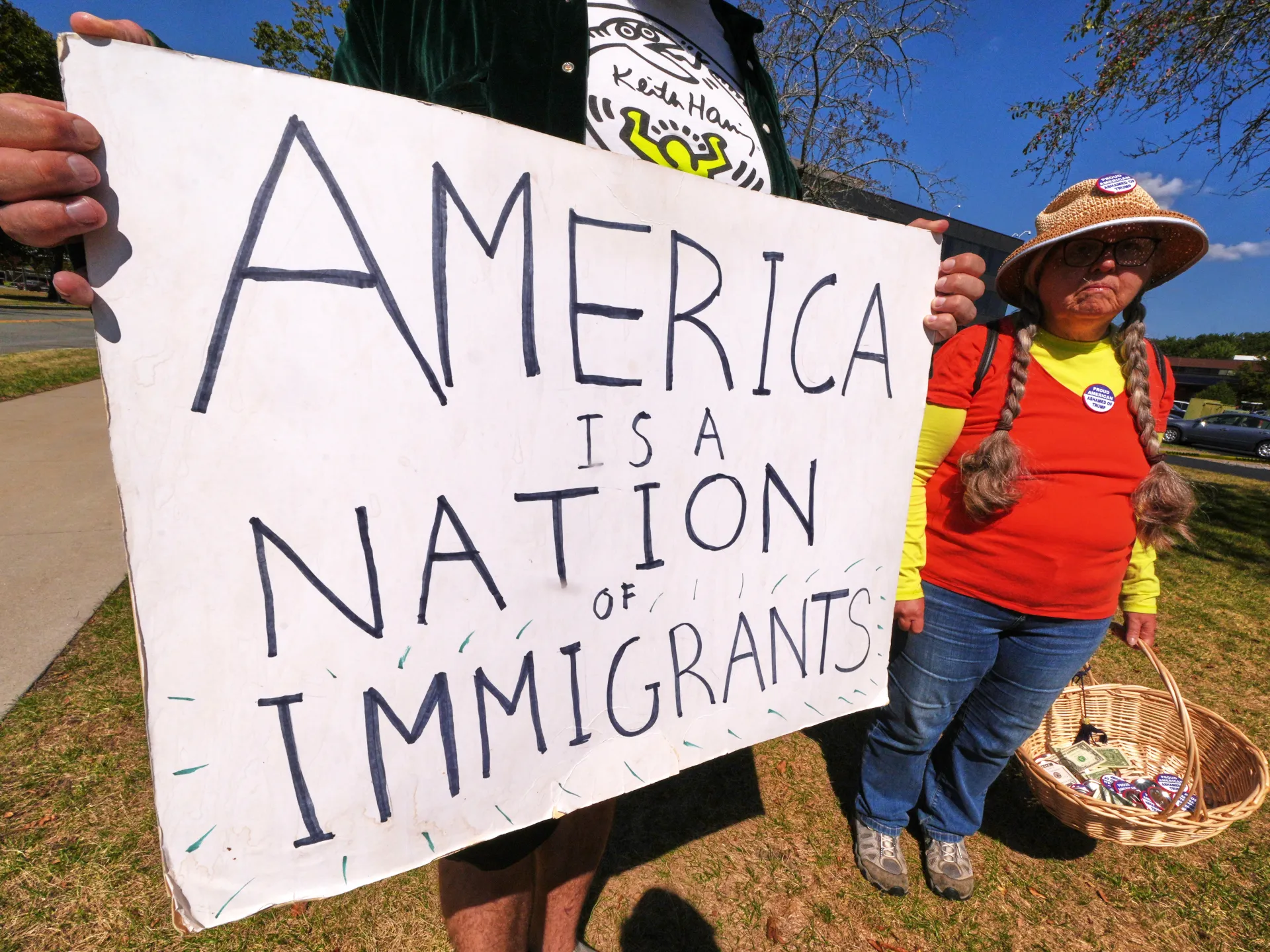‘False narrative’: Families challenge Trump’s 75-country US visa suspension | Donald Trump News
Washington, DC – A group of United States citizens and immigrant rights groups has launched a lawsuit seeking to challenge the sweeping suspension of immigrant visa processing for 75 countries by the administration of United States President Donald Trump.
The lawsuit filed on Monday argues that the Trump administration has relied on a false narrative to justify the visa processing suspension, one of the most substantial restrictions on legal immigration in the country’s history.
Recommended Stories
list of 3 itemsend of list
The lawsuit charges the policy “constitutes an unlawful nationality-based ban on legal immigration and a new set of discriminatory, unlawful public charge rules that strips families and working people of the process guaranteed by law”, according to a case overview by the National Immigration Law Center, which is among the groups supporting the legal challenge.
The sprawling 106-page complaint further alleges that the administration relies “on an unsupported and demonstrably false claim that nationals of the covered countries migrate to the United States to improperly rely on cash welfare and are likely to become ‘public charges’”.
The State Department has described the action, announced in mid-January, as a “pause” on immigrant visa processing on “countries whose migrants take welfare from the American people at unacceptable rates”.
The department has not revealed the criteria it used to determine which countries were added to the list, which comes amid a wider effort to constrict legal immigration pathways into the US and to deport undocumented citizens from the country.
The affected countries include Afghanistan, Bangladesh, Mongolia, Brazil, Colombia, Cambodia, the Democratic Republic of Congo, Ethiopia, Nigeria, Senegal, Ghana, Somalia and Russia.
The list also includes Kuwait, Jordan, Lebanon, Tunisia, Iraq, Syria, and Yemen, as well as several Caribbean, Pacific Island, and Eastern European countries.
Non-immigrant visas, including business and tourist visas, remain exempt.
“The freeze will remain active until the US can ensure that new immigrants will not extract wealth from the American people,” the State Department said in January.
‘Arbitrary, unlawful, and deeply harmful’
More than a dozen organisations and individuals named as plaintiffs in Monday’s lawsuit, as well as the seven legal organisations supporting them, argue the administration’s policy misuses the so-called “public charge” ground for inadmissibility laid out in the Immigration and Nationality Act (INA).
The provision, they argue, is meant to be a determination made on an “individualised” basis that a person risks becoming “primarily and permanently dependent on government for subsistence” if they are granted immigration status.
In turn, they said the administration is violating another provision of the INA, which says “no person shall receive any preference or priority or be discriminated against in the issuance of an immigrant visa because of the person’s race, sex, nationality, place of birth, or place of residence”.
It further argues that the administration has adopted an overly broad interpretation of what constitutes a “public charge”.
The plaintiffs include US citizens who had petitioned and been approved for their family members, including children and spouses, to join them in the US, a process known as “family unification”. Other plaintiffs included foreign nationals approved for immigrant visas through their specialised employment.
Hasan Shafiqullah, immigration supervising attorney at The Legal Aid Society, called the State Department policy “arbitrary, unlawful, and deeply harmful to families who have followed the rules and are simply seeking to reunite with their loved ones”.
Other lawyers supporting the case underscored that the policy disproportionately affects people from Africa, the Middle East, South and Central Asia and Eastern Europe.
Baher Azmy, the legal director of the Center for Constitutional Rights, accused the administration of relying on “obviously pretextual tropes about nonwhite families undeservedly taking benefits”.
“Congress and the Constitution prohibit white supremacy as grounds for immigration policy.”
The lawsuit further points to “arbitrary and disparaging” statements made by Trump and administration officials about immigrants being likely to receive public benefits.
It notes that most immigrants are ineligible for most government assistance programmes, yet are required to pay local, state, and federal taxes.
The State Department did not reply to a request for comment on the new legislation from Al Jazeera. US agencies typically do not comment on pending litigation.
Chances of success
The odds of success for the new lawsuit, which comes amid a deluge of legal challenges, remained unclear.
Plaintiffs have won at least temporary pauses on several key immigration issues, particularly related to Trump’s use of the Alien Enemies Act of 1798 to swiftly deport alleged gang members and his effort to end birthright citizenship, as lawsuits make their way through the legal system.
Many more long-term decisions remain elusive.
Meanwhile, in 2018, a 5-4 ruling by the conservative-dominated US Supreme Court upheld Trump’s visa-processing ban on several Muslim-majority countries, including Iran, Syria, Yemen, Libya and Somalia.
In the 2018 ruling, most justices ruled that the president had broad discretion to limit the entry of individuals into the US.
At the time, the Trump administration cited “national security” concerns rather than the “public charge” argument it has used in the most recent suspension.

